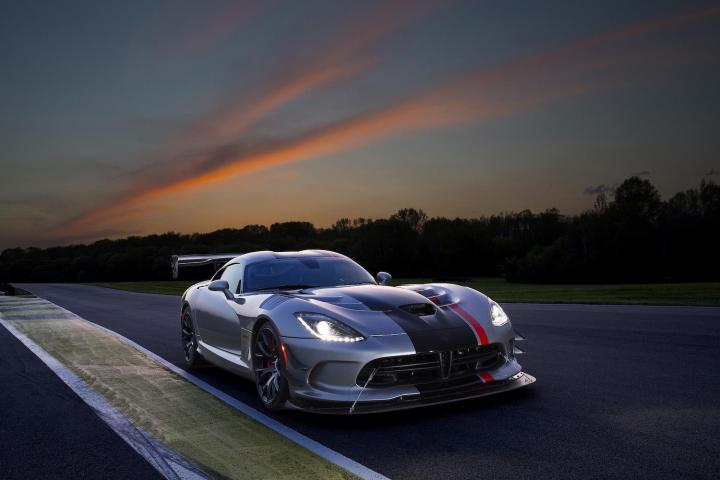
“Given the architectural development within the brand, there is a possibility that a new version of the Viper may surface,” FCA CEO Sergio Marchionne said in an interview with Automobile at this week’s Detroit Auto Show. However, he said it is “unclear” whether this new version will appear in time to replace the current car before it goes out of production.
While FCA still hasn’t officially confirmed this, the company’s latest contract with the United Auto Workers union indicates that Viper production will cease soon, with no replacement in sight. The contract shows that the Viper will be “built out” in 2017, and that the Connor Avenue assembly plant in Michigan where the car is built will be shut down in the near future.
The latest Viper started out as a morale builder for embattled Chrysler. Conceived in the wake of the company’s bankruptcy and acquisition by Fiat, it was triumphantly unveiled at the 2012 New York Auto Show as the SRT Viper. The new model’s emergence ended a short Viper hiatus and was meant to signal Chrysler’s resurrection. But sales have been sluggish. Less than 1,000 units were shifted in each of the last two years.
More expensive and harder to handle than a Corvette, and much cruder than the supercars it rivals in performance, the Viper has always been an acquired taste. Chevy’s 650-horsepower Corvette Z06 is now a much closer rival to the 645-hp standard Viper, although Dodge recently released an even more hardcore ACR model. Dodge’s 707-hp Challenger and Charger SRT Hellcat twins may have stolen some of the Viper’s thunder was well.
Given its minuscule sales volumes even at the best of times, building the Viper on a dedicated platform, with its model-specific 8.4-liter V10 is also a problem for FCA. Both may have to go if the Viper is to survive. A platform shared with another FCA product (a Maserati, perhaps?) and a smaller engine that will do less damage to the company’s Corporate Average Fuel Economy (CAFE) score both seem likely for any new model.


